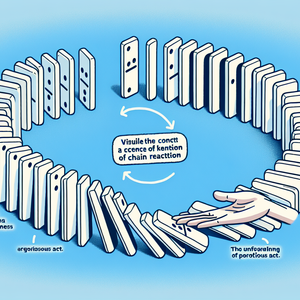Beyond the Court: Austin Reaves and His Impact on Mental Health Awareness

Young athletes face an array of pressures that can lead to mental health challenges. The demanding nature of training, the expectation to perform, and the constant scrutiny from fans and media can create a perfect storm of anxiety and stress. Research indicates that nearly one-third of athletes experience notable symptoms of anxiety or depression, a statistic that underscores the urgent need for mental health resources in sports. Austin Reaves' personal story exemplifies the challenges many young athletes encounter. Growing up in a small town, he faced numerous hurdles, from being overlooked by scouts to battling self-doubt during his ascent to the NBA. By sharing his narrative, Reaves creates a connection with young athletes who may feel pressure to conform to an ideal of toughness, making it clear that vulnerability is a part of the human experience.
Reaves' Advocacy for Mental Health
Reaves understands the importance of mental health, both personally and professionally. He has actively used his platform to discuss the significance of mental wellness in an environment that often prioritizes physical performance over emotional well-being. During interviews, Reaves has candidly spoken about his own struggles, emphasizing that mental health is just as vital as physical training. Beyond verbal advocacy, Reaves has collaborated with various mental health organizations to enhance awareness and provide resources. His participation in community events and initiatives aims to break down the stigma surrounding mental health issues among athletes. By demonstrating that even high-profile athletes can face mental health challenges, Reaves encourages his peers to speak openly about their struggles, fostering a culture where seeking help is seen as a sign of strength rather than weakness.
The Ripple Effect of Reaves' Message
The ripple effect of Reaves' advocacy is profound, reaching far beyond the NBA. His openness resonates with young athletes at high schools and colleges, many of whom grapple with their own mental health issues. By showcasing his own vulnerabilities, Reaves becomes a relatable figure for these athletes, validating their experiences and encouraging them to prioritize their mental health. Additionally, Reaves' journey serves as a beacon of hope and resilience. It illustrates that setbacks and struggles are part of the path to success, and that with the right support, individuals can overcome their challenges. His message is particularly crucial in a society that often equates success with perfection, as it reminds young athletes that mental health should be prioritized alongside their physical training.
Austin Reaves is more than just a talented NBA player; he is a vital advocate for mental health awareness in sports. His willingness to share his personal experiences and promote the importance of mental wellness is helping to dismantle the stigma surrounding mental health issues among athletes. As discussions around mental health continue to evolve, it is imperative for more athletes to follow Reaves' lead, using their platforms to inspire change and support one another in their journeys. In a culture that often overlooks mental health, Reaves stands out as a guiding light, demonstrating that it is not only acceptable to seek help but necessary for holistic success. Ultimately, his advocacy contributes to creating a healthier, more empathetic sports environment where athletes can thrive both on and off the court.
Sports Psychologist
Professional sports teams, universities, sports academies
Core Responsibilities
Provide counseling and mental health support to athletes dealing with performance anxiety, depression, and stress.
Collaborate with coaches and trainers to integrate mental wellness strategies into training programs.
Conduct workshops and group sessions to educate athletes on mental health topics.
Required Skills
Strong understanding of sports psychology principles and practices.
Excellent communication and interpersonal skills to effectively connect with athletes.
Relevant qualifications (e.g., PhD in Psychology, licensure as a psychologist).
Athletic Trainer with a Focus on Mental Health
Colleges, professional sports franchises, rehabilitation centers
Core Responsibilities
Develop and implement training programs that incorporate mental health strategies.
Assess athletes’ physical and psychological readiness for competition.
Provide immediate care and support for athletes experiencing mental health crises during events.
Required Skills
Certification as an athletic trainer (e.g., ATC) with additional training in mental health first aid.
Ability to recognize signs of mental distress in athletes and provide appropriate interventions.
Strong organizational skills for managing athlete welfare programs.
Mental Health Advocate in Sports Organizations
Non-profit organizations, professional sports leagues, educational institutions
Core Responsibilities
Develop and promote mental health initiatives within sports organizations.
Organize community outreach programs to educate athletes and the public about mental health issues.
Collaborate with mental health professionals to create resources and training for athletes and coaches.
Required Skills
Experience in program development and advocacy within the sports sector.
Strong public speaking and networking abilities to foster partnerships with health organizations.
A background in psychology, sports management, or a related field.
Sports Journalist Specializing in Mental Health Topics
Sports media outlets, online publications, podcasts
Core Responsibilities
Research and write articles that focus on mental health issues affecting athletes and sports culture.
Conduct interviews with athletes, coaches, and mental health professionals to provide insights into current trends.
Create multimedia content (videos, podcasts) to raise awareness and foster discussion around mental wellness in sports.
Required Skills
Strong writing and storytelling skills, with a keen eye for detail.
Familiarity with mental health topics, particularly in the context of sports.
Experience in journalism or media production.
Community Outreach Coordinator for Sports Mental Health Programs
Non-profit organizations, community health centers, educational institutions
Core Responsibilities
Develop partnerships with local schools and sports clubs to promote mental health awareness initiatives.
Organize workshops, seminars, and support groups for young athletes and their families.
Evaluate program effectiveness and gather feedback to improve mental health resources in the community.
Required Skills
Strong organizational skills and experience in community engagement.
Knowledge of mental health resources and programs available for athletes.
Excellent communication skills to effectively connect with diverse audiences.


